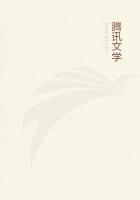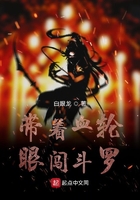and there being always annexed to the enjoyment of land, a submission to the government of the country, of which that land is a part; it has been commonly supposed, that a father could oblige his posterity to that government, of which he himself was a subject, and that his compact held them; whereas, it being only a necessary condition annexed to the land, and the inheritance of an estate which is under that government, reaches only those who will take it on that condition, and so is no natural tie or engagement, but a voluntary submission: for every man's children being by nature as free as himself, or any of his ancestors ever were, may, whilst they are in that *******, choose what society they will join themselves to, what common-wealth they will put themselves under. But if they will enjoy the inheritance of their ancestors, they must take it on the same terms their ancestors had it, and submit to all the conditions annexed to such a possession. By this power indeed fathers oblige their children to obedience to themselves, even when they are past minority, and most commonly too subject them to this or that political power: but neither of these by any peculiar right of fatherhood, but by the reward they have in their hands to inforce and recompence such a compliance; and is no more power than what a French man has over an English man, who by the hopes of an estate he will leave him, will certainly have a strong tie on his obedience: and if, when it is left him, he will enjoy it, he must certainly take it upon the conditions annexed to the possession of land in that country where it lies, whether it be France or England.
Sec. 74. To conclude then, tho' the father's power of commanding extends no farther than the minority of his children, and to a degree only fit for the discipline and government of that age; and tho' that honour and respect, and all that which the Latins called piety, which they indispensably owe to their parents all their life-time, and in all estates, with all that support and defence is due to them, gives the father no power of governing, i.e. ****** laws and enacting penalties on his children; though by all this he has no dominion over the property or actions of his son: yet it is obvious to conceive how easy it was, in the first ages of the world, and in places still, where the thinness of people gives families leave to separate into unpossessed quarters, and they have room to remove or plant themselves in yet vacant habitations, for the father of the family to become the prince of* it; he had been a ruler from the beginning of the infancy of his children: and since without some government it would be hard for them to live together, it was likeliest it should, by the express or tacit consent of the children when they were grown up, be in the father, where it seemed without any change barely to continue; when indeed nothing more was required to it, than the permitting the father to exercise alone, in his family, that executive power of the law of nature, which every free man naturally hath, and by that permission resigning up to him a monarchical power, whilst they remained in it. But that this was not by any paternal right, but only by the consent of his children, is evident from hence, that no body doubts, but if a stranger, whom chance or business had brought to his family, had there killed any of his children, or committed any other fact, he might condemn and put him to death, or other-wise have punished him, as well as any of his children;which it was impossible he should do by virtue of any paternal authority over one who was not his child, but by virtue of that executive power of the law of nature, which, as a man, he had a right to: and he alone could punish him in his family, where the respect of his children had laid by the exercise of such a power, to give way to the dignity and authority they were willing should remain in him, above the rest of his family.
(*It is no improbable opinion therefore, which the archphilosopher was of, that the chief person in every houshold was always, as it were, a king: so when numbers of housholds joined themselves in civil societies together, kings were the first kind of governors amongst them, which is also, as it seemeth, the reason why the name of fathers continued still in them, who, of fathers, were made rulers; as also the ancient custom of governors to do as Melchizedec, and being kings, to exercise the office of priests, which fathers did at the first, grew perhaps by the same occasion. Howbeit, this is not the only kind of regiment that has been received in the world. The inconveniences of one kind have caused sundry others to be devised; so that in a word, all public regiment, of what kind soever, seemeth evidently to have risen from the deliberate advice, consultation and composition between men, judging it convenient and behoveful; there being no impossibility in nature considered by itself, but that man might have lived without any public regiment, Hooker's Eccl. Pol. lib. i. sect. 10.)Sec. 75. Thus it was easy, and almost natural for children, by a tacit, and scarce avoidable consent, to make way for the father's authority and government. They had been accustomed in their childhood to follow his direction, and to refer their little differences to him, and when they were men, who fitter to rule them? Their little properties, and less covetousness, seldom afforded greater controversies; and when any should arise, where could they have a fitter umpire than he, by whose care they had every one been sustained and brought up, and who had a tenderness for them aII? It is no wonder that they made no distinction betwixt minority and full age; nor looked after one and twenty, or any other age that might make them the free disposers of themselves and fortunes, when they could have no desire to be out of their pupilage: the government they had been under, during it, continued still to be more their protection than restraint; and they could no where find a greater security to their peace, liberties, and fortunes, than in the rule of a father.
Sec. 76. Thus the natural fathers of families, by an insensible change, became the politic monarchs of them too: and as they chanced to live long, and leave able and worthy heirs, for several successions, or otherwise; so they laid the foundations of hereditary, or elective kingdoms, under several constitutions and mannors, according as chance, contrivance, or occasions happened to mould them. But if princes have their titles in their fathers right, and it be a sufficient proof of the natural right of fathers to political authority, because they commonly were those in whose hands we find, de facto, the exercise of government: I say, if this argument be good, it will as strongly prove, that all princes, nay princes only, ought to be priests, since it is as certain, that in the beginning, the father of the family was priest, as that he was ruler in his own houshold.















